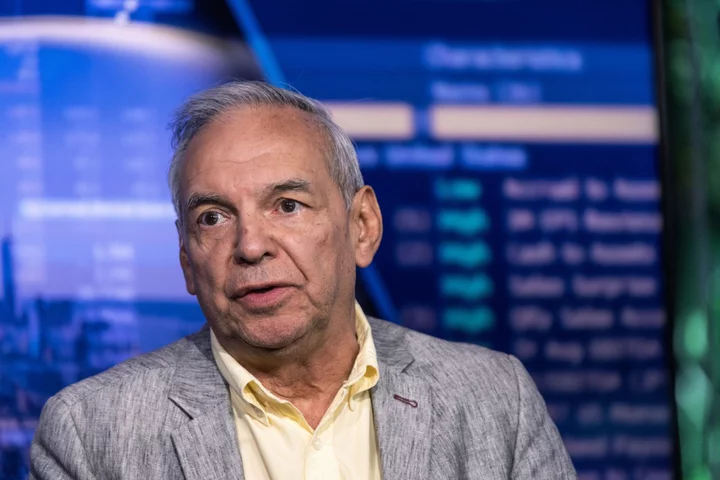Colombia could potentially start to ease monetary policy within three months as inflation cools and the peso stabilizes around its current level, according to the nation’s finance chief.
If consumer price rises slow in line with expectations over the next six months, the central bank could “easily” cut its key interest rate by two percentage points by the end of the year, Finance Minister Ricardo Bonilla said.
“We expect that interest rates will stay unchanged this month, and we’ll monitor for the next two or three months until September, when we’ll analyze whether interest rates can start to come down,” said Wednesday, in an interview at Bloomberg’s headquarters in New York.
Economists surveyed by Bloomberg forecast that the central bank will bring an end to its steepest-ever series of interest rate rises at its June 30 policy meeting. Colombia is the last major inflation-targeting economy in the Latin America to halt monetary tightening, while some smaller economies — Uruguay and Costa Rica — have already started cutting interest rates, as growth slows across Latin America.
In Colombia, the finance minister is a voting member of the central bank’s seven-member board.
Annual inflation peaked at its highest level in nearly a quarter century earlier this year, but Bonilla forecasts it will slow to about 9% by the end of the year.
The central bank’s battle against consumer price rises has received a boost from the peso, which has strengthened 17% this year, the most among major emerging markets. Bonilla said he expects the currency to stabilize close to its current level at around 4,100 to 4,200 per dollar.
Read more: Leftist Colombia Leader Delivers the Paralysis Markets Want
On the other hand, Bonilla said the government will continue to phase out gasoline subsidies, which is likely to slow inflation’s convergence to its 3% target.
Investors are worried about the government’s proposed pension reform, which would slash flows to private fund managers, cutting demand in local asset markets. Those fears are unfounded, Bonilla said, since some of the extra flows the government would receive will go to a savings fund that can buy corporate debt, equity, and other financial instruments. The proposals are currently being debated by congress.
‘Full Tank’
The government plans to sell about $1.5 billion of dollar bonds this year, to pre-finance its 2024 budget, according to its financial plan published this month.
Speaking alongside Bonilla, Public Credit Director Jose Roberto Acosta said it makes sense to sell bonds this year since there’s no guarantee that interest rates will fall in 2024, and it is better to have a “full tank” to face any contingencies.
Economic growth will slow to 1.8% this year, from 7.3% last year, according to the finance ministry. The government is planning to boost investment in public works projects and home-building by about $1 billion, to try to shore up growth in the second half of the year, Bonilla said. Congress is currently studying a budget addition proposed by the government, which includes this proposal.
Read more: Aval CEO Sees Rising Number of Distressed Colombian Consumers
Bonilla is a close ally of Colombia’s leftist President Gustavo Petro, and also served as his finance chief when Petro was mayor of Bogota. Bonilla took office last month after Petro unexpectedly ousted Columbia University professor Jose Antonio Ocampo from the role.
--With assistance from Robert Jameson, Shery Ahn, Vivianne Rodrigues, Augusta Saraiva and Zijia Song.
(Updates with comments on pension reform in 9th paragraph)

